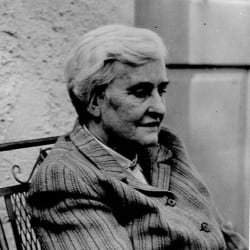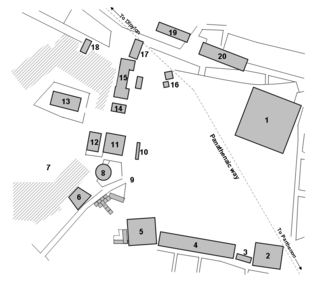Related Research Articles

Sappho was an Archaic Greek poet from Eresos or Mytilene on the island of Lesbos. Sappho is known for her lyric poetry, written to be sung while accompanied by music. In ancient times, Sappho was widely regarded as one of the greatest lyric poets and was given names such as the "Tenth Muse" and "The Poetess". Most of Sappho's poetry is now lost, and what is extant has mostly survived in fragmentary form; only the Ode to Aphrodite is certainly complete. As well as lyric poetry, ancient commentators claimed that Sappho wrote elegiac and iambic poetry. Three epigrams formerly attributed to Sappho are extant, but these are actually Hellenistic imitations of Sappho's style.

Pindar was an Ancient Greek lyric poet from Thebes. Of the canonical nine lyric poets of ancient Greece, his work is the best preserved. Quintilian wrote, "Of the nine lyric poets, Pindar is by far the greatest, in virtue of his inspired magnificence, the beauty of his thoughts and figures, the rich exuberance of his language and matter, and his rolling flood of eloquence, characteristics which, as Horace rightly held, make him inimitable." His poems can also, however, seem difficult and even peculiar. The Athenian comic playwright Eupolis once remarked that they "are already reduced to silence by the disinclination of the multitude for elegant learning". Some scholars in the modern age also found his poetry perplexing, at least until the 1896 discovery of some poems by his rival Bacchylides; comparisons of their work showed that many of Pindar's idiosyncrasies are typical of archaic genres rather than of only the poet himself. His poetry, while admired by critics, still challenges the casual reader and his work is largely unread among the general public.
Erich Stephen Gruen is an American classicist and ancient historian. He was the Gladys Rehard Wood Professor of History and Classics at the University of California, Berkeley, where he taught full-time from 1966 until 2008. He served as president of the American Philological Association in 1992.

Timothy Nolan Gantz was an American classical scholar and the author of Early Greek Myth: A Guide to Literary and Artistic Sources.
Mary R. Lefkowitz is an American scholar of Classics. She is the Professor Emerita of Classical Studies at Wellesley College in Wellesley, Massachusetts, where she previously worked from 1959 to 2005. She has published ten books over the course of her career.

Lily Ross Taylor was an American academic and author, who in 1917 became the first female Fellow of the American Academy in Rome.
Simon Hornblower, FBA is an English classicist and academic. He was Professor of Classics and Ancient History in the University of Oxford and, before retiring, was most recently a senior research fellow at All Souls College, Oxford.

The Altar of the Twelve Gods, was an important altar and sanctuary at Athens, located in the northwest corner of the Classical Agora. The Altar was set up by Pisistratus the Younger, during his archonship, in 522/1 BC. It marked the central point from which distances from Athens were measured and was a place of supplication and refuge.
Brunilde Sismondo Ridgway is an Italian archaeologist and specialist in ancient Greek sculpture.

Aesop was a Greek fabulist and storyteller credited with a number of fables now collectively known as Aesop's Fables. Although his existence remains unclear and no writings by him survive, numerous tales credited to him were gathered across the centuries and in many languages in a storytelling tradition that continues to this day. Many of the tales associated with him are characterized by anthropomorphic animal characters.

The epinikion or epinicion is a genre of occasional poetry also known in English as a victory ode. In ancient Greece, the epinikion most often took the form of a choral lyric, commissioned for and performed at the celebration of an athletic victory in the Panhellenic Games and sometimes in honor of a victory in war. Major poets in the genre are Simonides, Bacchylides, and Pindar.
Glenn Warren Most is an American classicist and comparatist originating from the US, but also working in Germany and Italy.
Nancy Felson is a Professor of Classics at the University of Georgia. She is the author of Regarding Penelope: From Character to Poetics (ISBN 978-0-8061-2961-7). She is the author of nearly three dozen scholarly articles discussing Greek and Latin literature.

The Greek lyric poet Pindar composed odes to celebrate victories at all four Panhellenic Games. Of his fourteen Olympian Odes, glorifying victors at the Ancient Olympic Games, the First was positioned at the beginning of the collection by Aristophanes of Byzantium since it included praise for the games as well as of Pelops, who first competed at Elis. It was the most quoted in antiquity and was hailed as the "best of all the odes" by Lucian. Pindar composed the epinikion in honour of his then patron Hieron I, tyrant of Syracuse, whose horse Pherenikos and its jockey were victorious in the single horse race in 476 BC.
Pherenikos was an Ancient Greek chestnut racehorse victorious at the Olympic and Pythian Games in the 470s BC. Pherenikos, whose name means "victory-bearer", was "the most famous racehorse in antiquity". Owned by Hieron I, tyrant of Syracuse, Pherenikos is celebrated in the victory odes of both Pindar and Bacchylides.

John T. Hamilton is a literary scholar, musician, and William R. Kenan Professor of German and Comparative Literature at Harvard University. He previously held positions at the University of California-Santa Cruz and New York University, and has also taught as a visiting professor at the Institute of Greece, Rome, and the Classical Tradition at Bristol University. Numerous academic fellowships include the Wissenschaftskolleg zu Berlin, the ETH-Zürich, the Zentrum für Literatur- und Kulturforschung Berlin, and the Hamburg Institute for Advanced Study.
Anne Pippin Burnett was an American classical scholar and academic who specialised in Greek literature, especially tragedy and the lyric poetry of the archaic and early classical periods.
Ruby Blondell is Professor Emerita of Classics and Adjunct Professor Emerita of Gender, Women, & Sexuality Studies at the University of Washington; prior to retirement, they were the Byron W. and Alice L. Lockwood Professor of Humanities also at the University of Washington. Their research centres on Greek intellectual history, gender studies, and the reception of ancient myth in contemporary culture.
Andrew Feldherr is professor of classics at Princeton University from where he also earned his bachelor's degree. He received his PhD from the University of California at Berkeley.
Deborah Kamen is Chair and Professor of Classics at the University of Washington. Her research is on Greek cultural and social history, with a particular focus on ancient slavery.
References
- ↑ "Faculty Profile: Leslie Kurke - UC Berkeley Department of Classics". classics.berkeley.edu. Archived from the original on 2007-05-10.
- ↑ "DTA 2002 | Leslie Kurke". Archived from the original on 2010-06-09. Retrieved 2010-05-02.
- ↑ "Bryn Mawr Now: Leslie Kurke '81 to Present a Classics Colloquium". Archived from the original on 2010-07-19. Retrieved 2010-05-02.
- ↑ Kurke, Leslie (1988). Pindar's Oikonomia : the house as organizing metaphor in the odes of Pindar.